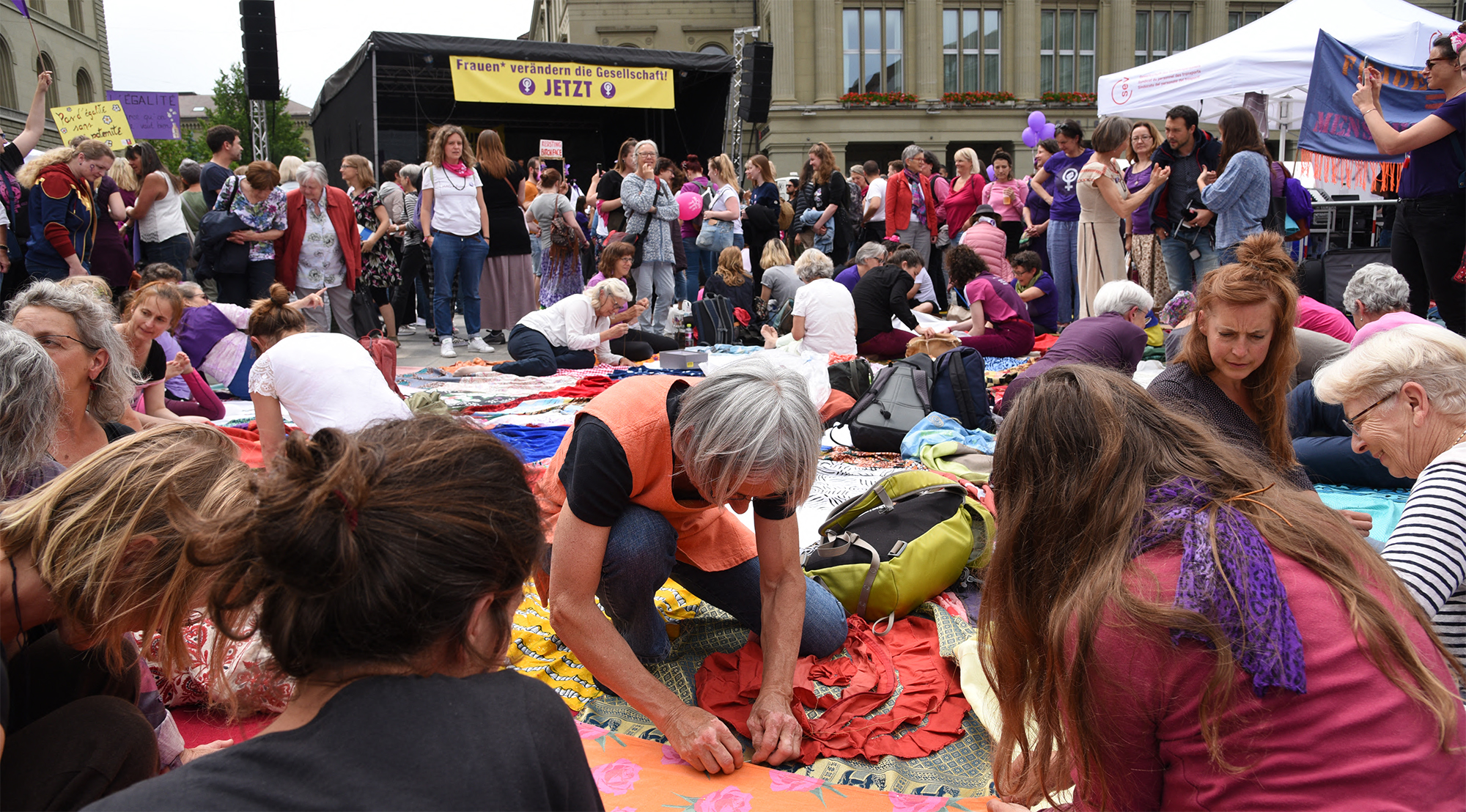2020 is an important year for women’s rights anniversaries: 20 years ago, UN Resolution 1325 was adopted. 25 years ago, the UN’s Fourth World Conference on Women in Beijing drew up a comprehensive list of measures to be taken in twelve areas, known as the Beijing Platform for Action. And 40 years ago, the Convention on the Elimination of All Forms of Discrimination against Women (CEDAW) came into effect. So is there a reason for celebrating women’s rights? No, because progress is slow and frequently the action taken to support women has no effect.
International instruments do not only provide a legal framework for gender equality in the world but also have an important part to play in promoting peace. “The more gender equality there is in a society, the more peaceful it is,” says Pascale Baeriswyl, the new Head of Switzerland’s Permanent Mission to the United Nations in New York.
By ratifying these agreements, Switzerland committed itself to work on reaching gender equality objectives both at home and abroad. However, the figures are dispiriting: only 4% of the participants at the negotiating table in peace processes are women; they are hugely underrepresented. In Swiss companies, women occupy only 30% of the leadership positions. The Swiss Covid-19 task force consists of two women and five times as many men. At the same time – as the coronavirus crisis has shown – women are significantly over-represented in care professions. They also still carry out the vast majority of low paid and unpaid domestic and care work. The statistics on domestic violence reveal how widespread and commonplace violence against women is in our society. In Switzerland, there is still no Equal Opportunities Office in 9 out of the 26 cantons, despite the CEDAW recommendations. Is this a reason for despair? No, but our impatience must continue to be a driving force for change.
It takes pressure from the streets
On 14 June 2019, the women’s strike mobilized over half a million people. The demands for greater institutional involvement and for international conventions to be implemented in practice did not go unheard. Following last October’s elections, the proportion of women in Parliament rose to 42%. Politicians male and female, on the right and on the left of the political spectrum, are now saying openly that a review of the Equal Pay Act is not enough to correct the systemic inequalities. Furthermore, a feminist special session on 11‑13 September 2020 questioned the federal policy on crisis management during the pandemic – a policy that barely takes any account of the realities of life for women.
Similarly, in the year 2000, Resolution 1325 would not have been accepted by the UN Security Council without pressure from the streets. Twenty years ago, women were demanding equal participation in decision-making processes on peace policies. The demand today is still the same as it was then. If they are to participate as equals, women must be empowered politically and economically. Twenty years after the UN Security Council’s Resolution 1325 came into force, we can see some progress towards positive, egalitarian peace. That encourages us, as representatives of civilian society, to continue to demand clear institutional and political responses to our demands. We do not despair, but nor are we celebrating (yet). We will continue to work stubbornly and with conviction, and together we will achieve our goals — hopefully before the 40th anniversary!


